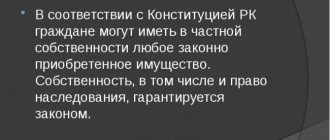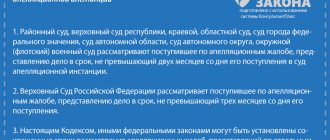What laws regulate the protection and privacy of personal life?
The fundamental act regulating this issue is the Constitution of the Russian Federation, namely Article No. 23. This article enshrines the right according to which every citizen can protect his personal, private and family life. Violation of such an immunity law entails the imposition of various sanctions, both administrative and criminal.
Civil legislation also regulates this issue. The Civil Code of the Russian Federation states that collecting information about a person’s private or personal life is permissible only with his consent or by court decision. In case of violation of this legal norm, a citizen has the right to demand compensation for losses caused or compensation for moral damage.
The most severe responsibility in this area of legal relations is contained in the Criminal Code of the Russian Federation. Here we are talking about the dissemination of data about a citizen’s personal secrets without his consent, including in a public manner.
On the inadmissibility of publishing information about private life
On March 13, “AG” published news regarding the Determination of February 12, 2021 No. 274-O of the Constitutional Court of the Russian Federation on the complaint of Sergei Bezrukov, who questioned the constitutionality of paragraph 1 of Art. 152.2 of the Civil Code of the Russian Federation, since, according to the meaning given to it by certain law enforcement practices, this norm allows for the collection, storage, distribution and other use of information about the private life of a citizen (in particular, by virtue of his profession working with the public) without his consent by the media and other persons with reference to “public interest”, as well as in cases where information about private life has previously “become publicly available”.
If the Constitutional Court website provided the opportunity to familiarize itself not only with judicial acts adopted on complaints, but also with the complaints themselves, the public would have more information about the essence of the problems in legal regulation raised before the Constitutional Court in the complaints.
These problems are not always resolved by initiating constitutional proceedings based on the applicants’ complaints. This is what happened with the complaints of Sergei Bezrukov.
It must be emphasized that incorrect headlines and comments in certain media reflected the situation with the complaints under discussion and with Determination No. 274-O itself not only inaccurately, but often exactly the opposite. In this regard, it is necessary to explain what actually happened.
Sergei Bezrukov sent four complaints to the Constitutional Court
The grounds for the first two complaints were stated to be legal uncertainty as to whether Art. 23, 24, 19 of the Constitution of the Russian Federation, provisions of paragraph 1 of Art. 152.2 of the Civil Code of the Russian Federation in the part in which they, according to the meaning given to them by certain judicial panels, allow the possibility of collecting, distributing and otherwise using information about the private life of a citizen without his consent with reference to “public interest”.
It would seem obvious: without the consent of a citizen, collecting and distributing information about his private life is prohibited by Art. 23, 24 of the Constitution of the Russian Federation, clause 5, part 1, art. 49 of the Law of the Russian Federation “On the Mass Media” (hereinafter referred to as the Law on Mass Media), paragraph 7 of Art. 3, part 8 art. 9 of the Federal Law “On Information, Information Technologies and Information Protection” (hereinafter referred to as the Information Law).
But some judges, with strange persistence, argue in judicial acts about the alleged admissibility of the uncoordinated collection and dissemination of private information about citizens with reference to some “public” or “other public” interest, erroneously identifying “public and other public interests” with any public interest, especially to public figures widely known in society.
Such “approaches” create episodes in judicial practice that reach the point of absurdity, for example:
- “...plaintiff B. is a famous Russian theater and film actor, People’s Artist of Russia... is a public figure engaged in creative activities on the territory of the Russian Federation,” “... in this case, the collection, storage, distribution and use of information about the plaintiff’s private life was carried out by the defendant in public interests, and therefore do not constitute a violation of the prohibition established by paragraph one of paragraph one of Article 152.2 of the Civil Code of the Russian Federation" (decision of the Savyolovsky District Court of Moscow dated August 17, 2021 in case No. 2-4076/16, appeal ruling of the Judicial Board in civil cases of the Moscow City Court dated February 8, 2021 in case No. 33-4505/2017), - and this despite the fact that the same court established that “... the photographs were taken with a hidden camera, not at any public events, ... evidence obtaining the consent of the plaintiff for the use of his image by the defendant was not presented" (!!!);
- “... information about a public person conducting family leisure activities within the Russian Federation on the territory of the Karelian Isthmus ... is certainly of public interest as a guideline for shaping people’s behavior ... in this case, when organizing and conducting leisure activities” (decision of the Savyolovsky District Court of Moscow dated June 15 2021 in case No. 2-3669/16) - despite the fact that the personal life of the plaintiff and her family was filmed without her consent with a hidden camera through the window of a holiday home and published without consent in online media; this decision was overturned by the court of appeal as unfounded and illegal (appeal ruling of the Judicial Collegium for Civil Cases of the Moscow City Court dated October 14, 2021 in case No. 33-39736);
- “... topics about gender relations, problems in relationships between men and women, including during marriage, ... in the opinion of the court, information about the birth of illegitimate children related to public figures ... certainly represents public interest as a guideline for the formation of those or other models of people’s behavior, the development of value systems and the resolution of moral and ethical problems that arise between married spouses” (decision of the Savelovsky District Court of Moscow dated July 7, 2016 in case No. 2-3979/16), - this the decision was also overturned by the appeal court as unfounded and illegal (appeal ruling of the Judicial Collegium for Civil Cases of the Moscow City Court dated April 12, 2021 in case No. 33-7215/2017).
But the wording of the norm in paragraph 1 of Art. is extremely unsuccessful from the point of view of legal technology and law enforcement. 152.2 of the Civil Code of the Russian Federation are still in effect, which allows the said provision to be misinterpreted, for example, as is done in the cited judicial acts, guided by the unlimited breadth of judicial discretion provided by this norm in its current edition.
Two other complaints from Sergei Bezrukov concerned the even more incorrect wording of Art. 152.2 of the Civil Code of the Russian Federation: “The collection, storage, distribution and use of information about the private life of a citizen ... in cases where information about the private life of a citizen previously became publicly available ...” is not a violation of the rules established by the first paragraph of this paragraph...”
If we proceed from the literal meaning of this condition, we can mistakenly assume that information about the private life of a citizen can become “publicly available”, as a result of which it may lose legal protection and protection, although this is contrary to Art. 23, 24 of the Constitution of the Russian Federation, as well as the legal position of the Constitutional Court, expressed, for example, in the Determination of June 28, 2012 No. 1253-O, which states: “based on the requirements of Articles 23 (part 1) and 24 (part 1) of the Constitution of the Russian Federation “, any information about a person’s private life is confidential, and therefore, in any case, it belongs to restricted access information.”
Most judges correctly resolve cases on the protection of private life, pointing out that information about the private life of citizens does not belong to “public information”, since access of other persons to information about the private life of citizens is limited by law, in particular Art. 23, 24 of the Constitution of the Russian Federation, art. 1, 150, 152.1 Civil Code of the Russian Federation, clause 5, part 1, art. 49 of the Law on Mass Media, paragraph 7 of Art. 3, part 8 art. 9 of the Information Law, but – as in the case of “public interest” – the defect in the rule leaves room for miscarriages of justice.
The complaints criticized as unconstitutional the erroneous practice created by certain judicial panels, allowing, under the pretext of “public or other public interest”, as well as “earlier dissemination in the media,” the collection and dissemination of information about the private and family life of public persons without their consent, which leads to to infringement of the rights and discrimination of cultural and artistic figures, sports, public figures and other people speaking in public, on the basis of belonging to a profession, a social group of so-called “public figures”.
The idle and unlawful “interest” of gossip consumers in any information about a public figure cannot be identified with public interest, i.e. with what is useful to the whole society. The Constitution of the Russian Federation guarantees public figures no less than other citizens of Russia the right to privacy and prohibits affecting people’s rights based on their social affiliation.
Having considered the complaints of Sergei Bezrukov on these problems, the Constitutional Court found that the norm of paragraph 1 of Art. 152.2 of the Civil Code of the Russian Federation does not contain uncertainty from the point of view of its compliance with the Constitution of the Russian Federation, it is simply that the courts need to correctly apply this norm, guided, among other things, now by the explanations given in Definition No. 274-O, which directly states: “Thus, the courts, when considering specific cases, it should be taken into account that information about private life, especially of an intimate nature, cannot be recognized as socially significant information only because it concerns a public (widely known in society) person, including representatives of creative professions.”
Determination No. 274-O, with reference to a number of decisions of the ECtHR, Resolution of the Plenum of the Supreme Court of the Russian Federation of June 23, 2015 No. 25 and Russian norms, sets out the criteria that should guide Russian courts when resolving cases on the protection of rights to privacy and image protection, namely:
1) details of the private life of a person, no matter how famous, cannot generally be considered a contribution to a discussion of public interest;
2) if the purpose of the publication is to make a profit, the citizen’s consent to the use of information about his private life, including the image, is necessary;
3) if the purpose of the publication is to satisfy ordinary people’s interest in private life, including images, obtaining the citizen’s consent is also necessary.
The fact that individual judicial panels, when considering Sergei Bezrukov’s claims against the media, which served as the basis for filing complaints with the Constitutional Court, were not guided by the stated approach and criteria, does not fall within the competence of the Constitutional Court, therefore the initiation of constitutional proceedings on the artist’s complaints was refused.
At the same time, it should be noted with satisfaction that by Decision No. 274-O the Constitutional Court additionally focused attention on the problem of the public danger of causing harm by the uncoordinated dissemination of information about the private life of public persons and their images, including on the Internet, pointing out that the practice of the ECHR , and the position of the Supreme Court of the Russian Federation on this issue are uniform: violating the rights of public persons by speculatively introducing ambiguity into the interpretation of the phrase “public or other public interest” is illegal and unacceptable!
Did Determination No. 274-O raise any questions?
Yes, there are questions. They are associated with a separate, very serious problem that worries many practitioners. The applicant did not touch upon her in his complaints, but for some reason the Constitutional Court somehow “by the way” touched upon her.
The Constitutional Court noted that the applicant was not deprived of the opportunity to apply in accordance with the established procedure with a demand to stop issuing information about the index of a site page on the Internet, allowing access to information about a citizen, distributed in violation of the law, which is unreliable, as well as irrelevant and no longer relevant for the citizen due to subsequent events (Part 1 of Article 10.3 of the Law on Information), however, he did not use this method of protecting his rights.
Unfortunately, not all illegal publications about Sergei Bezrukov could even theoretically require the cessation of issuing links, since some of the publications were in print media.
With the same publications that were distributed on the Internet, there was another difficulty: submitting a request to stop issuing links requires providing evidence that the information posted through the links is being distributed in violation of the law (in this case, in violation of the law on the protection of privacy life and personal images). In the absence of a court decision that has entered into legal force and established the fact of violation of the law, the requirement to stop issuing links loses the prospect of being fulfilled. And in those cases in which the applicant filed complaints with the Constitutional Court, the situation was exactly this: the courts erroneously did not establish facts of violations of the law.
Under these circumstances, I believe that the applicant made every attempt to protect his violated rights by all means provided by law.
Considering the relevance of the topic, I invite my colleagues to share on the pages of “AG” their experience in the practical application of the norm of Part 1 of Art. 10.3 of the Information Law.
Privacy: Definition
Regarding this issue, different theorists express different points of view. So, for example, Shershenevich argues that private life is those aspects of human existence that a person wants to make inaccessible to others. Baglay believes that private life is the inner world of a person.
Within the framework of legal realities, private life should be understood as the totality of the following information:
- Correspondence.
- Personal space.
- Family life.
- Information about work, family composition, etc.
Within the framework of various legal acts, other elements are included in the concept of private life. Within the framework of civil legislation, for example, honor, good name, etc. are also protected.
The principle of inviolability
This principle means that information included in this concept cannot be disseminated without the permission of the citizen.
In addition to the citizen’s permission, distribution will also be legal when it is prescribed, for example, in a court decision. The same applies to collecting information about a citizen.
Protection of personal space by law
Personal space is legally protected through the application of sanctions provided for in civil, criminal and administrative law.
The application of a particular normative legal act depends on the severity of the act committed. The main sanctions used are fines, damages, imprisonment, correctional and forced labor.
A specific way to protect personal space within the framework of civil law is also to comply with requirements to eliminate violations and refute defamatory information.
Correspondence Law
The right to correspondence, and in particular to maintain its secrecy, is enshrined in many regulatory legal acts, among which are:
- Constitution of the Russian Federation.
- Law "On Communications".
- Criminal Code of the Russian Federation.
- Civil Code of the Russian Federation.
The fundamental regulatory legal act in this matter is the Law “On Communications”. It is there that the concept called the secret connection is contained. It means that secrecy is ensured both during correspondence and telephone conversations, including those using the Internet. The protection and security of citizens is respected by mobile operators. Violation of such a right is permitted only by a court decision.
Violation of this right is subject to the imposition of large fines, the amount of which is determined depending on whether the act relates to administrative or criminal liability.
How the law protects citizens
There are several regulations that ensure the immunity of Russians. Therefore, information from the following documents is taken into account:
- Art. 23 of the Constitution of the Russian Federation;
- Art. 152.2 of the Civil Code, containing data on the protection of personal information;
- Art. 137 of the Criminal Code, which provides for the main measures of liability applied to persons who commit any illegal actions that violate the integrity of another citizen.
According to the Constitution of the Russian Federation, every Russian has the right to secrets. If necessary, you can defend your good name and positive reputation. This even includes the secrecy of correspondence and telephone conversations.
The restriction is lifted only if there is a court decision, if a criminal case has been opened against a person, therefore information obtained from correspondence or telephone conversations acts as evidence of a person’s crime or innocence.
Responsibility when using official position
Violation of the right to privacy, interference with privacy or illegal dissemination of information about citizens using official position is considered and punished under the criminal code.
In this case, the following types of liability can be applied:
- fine;
- deprivation of liberty;
- deprivation of the right to hold certain positions, etc.
The fine in this situation starts from 100 thousand rubles and up to three hundred thousand rubles.
Violation of the confidentiality of correspondence and other communications
The Criminal Code protects correspondence, telephone conversations, postal, telegraph and other messages. Violation of this secret on the basis of Article 138 of the Criminal Code of the Russian Federation threatens with a material penalty in favor of the state of up to 80 thousand rubles, compulsory or corrective labor. Violation of the inviolability of the home is also subject to criminal liability.
Restriction of the right to privacy of correspondence, telephone conversations and other methods of exchanging information is possible on the basis of Article 13 of the Criminal Procedure Code only if there is an appropriate court decision.
Article 23 of the Constitution of the Russian Federation: punishment for violation
Liability for violation of this article of the constitution can be of three types: civil, criminal or administrative. It all depends on the severity of the act committed and on other circumstances that are significant. For example, within the framework of the administrative code, fines are imposed on citizens in an amount not exceeding three thousand.
In criminal law, the fine cannot exceed two hundred thousand rubles if there was no abuse of official position.
Article 23 of the Constitution of the Russian Federation. ⇐
Article 137 of the Criminal Code of the Russian Federation “violation of privacy”
You can download article number 137 by clicking here. ⇐
Types of liability for violation
If the privacy of personal life is violated, which leads to the dissemination of information about a person’s life, then measures are taken against the violator within the framework of the Criminal Code. They are represented by a fine, a real prison term, as well as forced and compulsory labor. The offender loses the right to occupy certain leadership positions. The fine varies from 100 to 300 thousand rubles.
According to Art. 152.2. The Civil Code regulates intrusion or encroachment on a person’s privacy. Based on Art. 23 of the Constitution of the Russian Federation, punishment for such violations can be represented by criminal, civil or administrative liability. The exact choice depends on the severity of the violation and other conditions that may be aggravating or mitigating. According to the administrative code, punishment is imposed in the form of a fine of up to 3 thousand rubles.
According to Art. 138 of the Criminal Code the following punishments are used:
- for the dissemination of secret information, a fine of up to 80 thousand rubles is imposed, which can be replaced by income for 6 months, compulsory work for up to 360 hours, or correctional labor for up to 1 year;
- if such a crime is committed by a person who took advantage of official opportunities, then the sanction ranges from 100 to 300 thousand rubles, and it can be replaced by salary for a period of 1 to 2 years, a ban on holding certain positions for a period of 2 to 5 years, mandatory labor for 480 hours, forced labor for 4 years, arrest for 4 months or prison term for 4 years.
Based on Art. 137 penalties may be used:
- collecting or transmitting illegally obtained data about people’s private lives without first obtaining consent is punishable by a fine of up to 200 thousand rubles, 18 months’ earnings, compulsory labor for 360 hours, forced labor for up to 2 years, deprivation of the right to hold certain positions for 3 years , arrest for 4 months, imprisonment for up to 2 years;
- if these violations are committed by a person who took advantage of his official position, then a fine of 100 to 300 thousand rubles will be charged. or earnings for a period of 1 to 2 years, and also deprivation of the right to hold certain positions for a period of 2 to 5 years, forced labor for up to 4 years, arrest for 6 months, and a prison term for up to 4 years;
- if confidential information is disseminated by illegal means in the media or during speeches indicating the identity of a minor who is not yet 16 years old, which leads to physical or spiritual harm to the child, then the fine ranges from 150 to 350 thousand rubles, and a sanction is also imposed, equal to the salary of the culprit from 18 months to three years, deprivation of the right to occupy leadership positions for a period of 3 to 5 years, forced labor for 5 years, arrest for six months or a prison term for 6 years.
Important! The exact punishment is determined only by the judge while studying all the materials attached to the case under consideration.
The culprit is not held accountable if the violation is minor. For example, if a neighbor overheard conversations or took some letters from the mailbox of other residents of the houses. Parents often read their child's correspondence, which is not a significant crime, since they are not distributing information or trying to harm the child.
Article 137 of the Criminal Code of the Russian Federation: comments on the law
Like any other offense, this crime has its own composition, which includes subjects, objects, as well as subjective and objective components. Let's look at the comments to the article.
The subject of this act may be a person who was already 16 years old at the time of the crime. He must be capable and fully sane. Only direct intent can be used as guilt. The object in this case is the citizen’s constitutional right to immunity.
As for possible penalties, it all depends on what qualifying feature is present. Dissemination in a public manner, using one's official position, in relation to a minor is permitted.
Thus, collecting information or illegal surveillance violates the legal guarantee of privacy. Such a right can be limited only by a court order, which states why the right is subject to restriction and why it is necessary.






